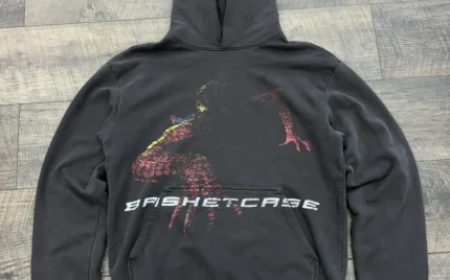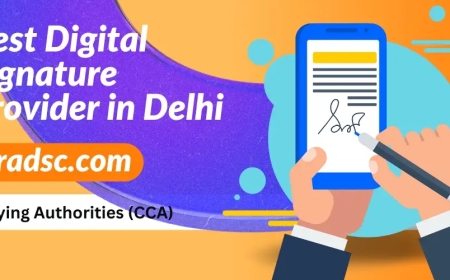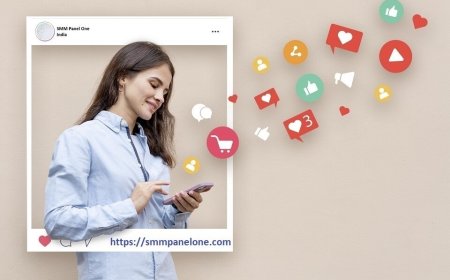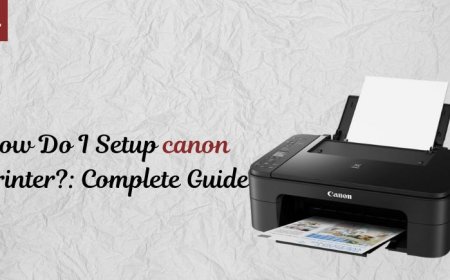How to Attend Live Book Readings in Columbus
How to Attend Live Book Readings in Columbus Live book readings are more than just author appearances—they are immersive cultural experiences that connect readers with the voices behind the stories they love. In Columbus, Ohio, a vibrant literary scene thrives across independent bookstores, public libraries, universities, and arts centers, offering frequent opportunities to hear authors read from
How to Attend Live Book Readings in Columbus
Live book readings are more than just author appearances—they are immersive cultural experiences that connect readers with the voices behind the stories they love. In Columbus, Ohio, a vibrant literary scene thrives across independent bookstores, public libraries, universities, and arts centers, offering frequent opportunities to hear authors read from their latest works, engage in Q&A sessions, and even meet fellow book enthusiasts. Whether you’re a lifelong reader, a budding writer, or simply curious about local culture, attending live book readings in Columbus can deepen your appreciation for literature and expand your community connections.
This guide provides a comprehensive, step-by-step roadmap to help you attend live book readings in Columbus with confidence and ease. From discovering upcoming events to navigating venue logistics and maximizing your experience, you’ll learn how to make the most of every reading. We’ll also highlight best practices, essential tools, real-world examples from Columbus venues, and answer common questions to ensure you never miss an opportunity to engage with the written word in its most dynamic form.
Step-by-Step Guide
Step 1: Understand the Types of Book Readings in Columbus
Before you begin searching for events, it helps to know the different formats book readings take in Columbus. Recognizing these variations will help you choose events that match your interests and availability.
Author readings are the most common type. These typically involve a single author reading selected passages from their recently published book, followed by a brief Q&A. These events are often hosted by independent bookstores like Wexner Center for the Arts, The Book Loft, or BookPeople.
Panel discussions feature multiple authors, often grouped by genre, theme, or regional focus. These are common at the Columbus Metropolitan Library main branch or during the annual Columbus Book Festival.
University-hosted readings occur frequently at The Ohio State University, Capital University, and Franklin University. These often include academic context, critical analysis, and student involvement, making them ideal for those interested in literary theory or creative writing.
Pop-up and community readings happen in non-traditional spaces like coffee shops, parks, or art galleries. These are often organized by local writing collectives such as Write Ohio or Columbus Writers’ Collective and tend to be more informal and intimate.
Step 2: Identify Reliable Sources for Event Listings
To avoid missing events, you need to know where to look. Relying on social media alone is risky—many events go unadvertised or are buried in feeds. Instead, use these trusted local sources:
- Columbus Metropolitan Library Events Calendar – Offers free, well-publicized readings at multiple branches. Filter by genre, date, or location.
- Wexner Center for the Arts – Hosts high-profile literary events, often in partnership with university presses and national authors.
- The Book Loft of German Village – Maintains a weekly updated events page featuring local and national authors. Their newsletter is highly recommended.
- BookPeople (Columbus) – Focuses on diverse voices and indie authors. Their events are often followed by book signings.
- Eventbrite.com – Search “book reading Columbus” and filter by date. Many independent organizers use this platform.
- Meetup.com – Join groups like “Columbus Book Lovers” or “Literary Columbus” to receive notifications about informal gatherings.
- Local newspapers – The Columbus Dispatch and City Magazine publish weekly arts and culture calendars that include literary events.
Pro tip: Subscribe to the email newsletters of at least two venues you frequent. Most send out weekly or biweekly event previews.
Step 3: Register or Reserve Your Spot
Many book readings in Columbus are free, but not all are open seating. Popular events—especially those featuring nationally recognized authors—often require registration due to limited capacity.
When you find an event:
- Click the registration link (usually on the venue’s website or Eventbrite).
- Provide your name and email. Some may ask for a phone number for last-minute updates.
- Check your inbox for a confirmation email. Save it—or add the event to your digital calendar.
- If the event is “first-come, first-served,” arrive early. Popular venues like the Main Library’s auditorium fill up 30–45 minutes before start time.
Some venues, like the Wexner Center, may require free tickets to be printed or shown on your phone at the door. Always double-check entry requirements.
Step 4: Plan Your Transportation and Arrival
Columbus is a walkable city, but venues vary in accessibility. Before attending:
- Use Google Maps to check the exact address and parking availability. Many bookstores (like The Book Loft) are in historic districts with limited parking—street parking is often metered or time-restricted.
- Consider public transit. The COTA bus system has routes to downtown, German Village, and OSU. Use the COTA app to track real-time arrivals.
- If driving, use apps like ParkMobile or SpotHero to reserve parking in advance. Some venues partner with nearby lots for discounted rates.
- Arrive 15–20 minutes early. This gives you time to find seating, purchase a book if desired, and settle in before the reading begins.
Step 5: Prepare for the Event
Attending a book reading is not passive. Your preparation enhances both your experience and the author’s.
- Read the author’s book beforehand if possible. Even reading the first chapter or a review helps you engage meaningfully during Q&A.
- Prepare one or two thoughtful questions. Avoid generic ones like “Where do you get your ideas?” Instead, ask about a specific character, theme, or research challenge mentioned in interviews.
- Bring a notebook or use your phone to jot down quotes or ideas. Many attendees find inspiration in live readings.
- Charge your phone. You may want to take photos (with permission) or record audio if allowed.
- Dress comfortably but respectfully. Most events are casual, but some at universities or the Wexner Center may have a slightly more formal atmosphere.
Step 6: Participate Respectfully During the Reading
Book readings are intimate events. The author has likely traveled, invested months of work, and is sharing something deeply personal. Follow these guidelines:
- Turn off your phone or set it to silent. Even vibrations can be distracting in a quiet room.
- Do not talk, whisper, or use your phone during the reading. If you need to step out, wait for applause or the end of a section.
- Applaud after the reading. Even if the passage was quiet or introspective, a gentle round of applause shows appreciation.
- If you have a question during Q&A, wait to be called on. Be concise—most events allow only 1–2 minutes per question.
- If the author invites you to share your thoughts, be sincere. Many authors cherish hearing how their work resonated with readers.
Step 7: Engage After the Event
The reading doesn’t end when the lights come up. This is often the most valuable part of the experience.
- Join the book signing line. Even if you didn’t purchase the book at the event, you can bring your own copy. Authors often personalize inscriptions.
- Ask for a photo if you’re comfortable. Most authors welcome this, especially if you express genuine admiration.
- Connect on social media. Follow the author and the venue. Comment on their posts—it builds community and increases the likelihood of future events.
- Leave a review on Google, Yelp, or Goodreads. Positive feedback helps venues justify hosting more literary events.
- Consider volunteering. Many Columbus venues rely on volunteers for event setup, book sales, or ushering. It’s a great way to stay involved.
Step 8: Reflect and Share Your Experience
After attending a reading, take a few minutes to reflect. What moved you? What surprised you? Did the author’s voice differ from what you imagined?
Share your experience:
- Post on Instagram or Twitter using hashtags like
ColumbusBookReading or #OhioLit.
- Write a short review on Goodreads or your personal blog.
- Recommend the book and event to a friend. Word-of-mouth keeps the literary scene alive.
Reflection deepens your connection to literature—and encourages others to join you.
Best Practices
1. Prioritize Consistency Over Quantity
It’s tempting to attend every event you find. But quality matters more than quantity. Choose 2–3 events per month that align with your interests. This allows you to fully absorb each experience and build meaningful relationships with organizers and fellow attendees.
2. Support Local Authors First
Columbus has a thriving community of local writers. Prioritize readings by Ohio-based authors before seeking out national names. Local authors often have smaller audiences and appreciate every attendee. You’ll also discover unique regional voices you won’t find elsewhere.
3. Be Mindful of Accessibility
Always check venue accessibility information. Most major venues in Columbus—like the Main Library and Wexner Center—are ADA-compliant, with ramps, elevators, and assistive listening devices. If you have specific needs, contact the venue ahead of time. They’re usually happy to accommodate.
4. Bring Cash and a Reusable Bag
Many bookstores rely on cash sales during events. Even if they accept cards, having cash ensures you can purchase a book quickly during a busy signing line. A reusable bag makes it easier to carry your new book, notebook, and any other items.
5. Respect the Space
Bookstores and libraries are shared community spaces. Don’t leave trash, avoid loud conversations, and don’t monopolize seating. If you’re bringing children, ensure they can sit quietly. Many readings are not suited for young children.
6. Keep a Reading Journal
Track the books you’ve heard read live: author name, date, venue, key takeaways, and your emotional response. Over time, this journal becomes a personal archive of literary growth and a great conversation starter.
7. Learn to Say “No”
It’s okay to skip an event. You don’t have to attend every reading to be a devoted reader. If you’re tired, overwhelmed, or simply not drawn to the author, honor your boundaries. The right event will come along.
8. Become a Regular
When you attend the same venue regularly, staff begin to recognize you. They may invite you to preview events, join a reader’s advisory committee, or even be asked to host a small discussion. Your presence matters.
Tools and Resources
Essential Digital Tools
- Google Calendar – Sync all event dates and set reminders 24 hours in advance.
- Goodreads – Create a “Want to Read” list for books you hear about at readings. You can also join Columbus-based book clubs through the platform.
- Eventbrite – Filter events by date, location, and price. Use the “Free” filter to find no-cost options.
- Meetup – Join “Columbus Book Club” or “Literary Columbus” for informal monthly gatherings.
- LibraryThing – Track your reading history and connect with other readers in Ohio.
- Spotify or Apple Podcasts – Subscribe to podcasts like “The Ohio Book Review” or “Columbus Reads” for audio summaries and interviews with local authors.
Physical Resources
- Columbus Metropolitan Library Card – Free to residents. Grants access to digital audiobooks, e-books, and exclusive event invitations.
- Bookstore Loyalty Programs – The Book Loft and BookPeople offer discounts for members. Sign up at the counter.
- Local Literary Magazines – Pick up copies of The Journal of Ohio Literature or Mid-American Review (published by Bowling Green State University, but widely available in Columbus). These often list upcoming events.
- Small Press Catalogs – Many Columbus-based publishers (like Ohio University Press or Hidden River Press) send out quarterly catalogs. Request one via email.
Community Organizations to Know
- Write Ohio – A nonprofit supporting writers across the state. Hosts workshops and readings. Visit writeohio.org.
- Columbus Writers’ Collective – A grassroots group organizing monthly open mics and author spotlights. Follow on Instagram @columbuswriters.
- Columbus Book Festival – Held every October. Features over 50 authors, panel discussions, and youth programming. Free admission.
- OSU Department of English – Hosts the “Literary Arts Series” each semester. Open to the public. Check their events page monthly.
- Franklin County Public Library System – Offers readings at all 22 branches. Some host bilingual readings in Spanish and English.
Real Examples
Example 1: A Reading at The Book Loft of German Village
In March 2024, author Emily Tran visited The Book Loft to promote her debut novel, Where the River Bends, a lyrical story set in rural Ohio. The event began with a 20-minute reading of the opening chapter, during which Tran paused to explain her research process in local archives. Afterward, she answered questions about her grandmother’s influence on the protagonist and how she balanced historical accuracy with fiction.
Attendees were invited to buy a signed copy. One woman brought her mother’s 1970s copy of a similar regional novel, and Tran inscribed it with a personal note. The event ended with a group photo and a shared pot of tea provided by the store. Over 70 people attended—many of whom returned for Tran’s next event two months later.
Example 2: University Reading at The Wexner Center
In April 2024, Pulitzer Prize finalist Dr. Marcus Boone presented a reading from his nonfiction work Voices of the Rust Belt, exploring economic decline and resilience in Midwestern towns. The event was held in the Wexner Center’s theater, with live interpretation provided for the hearing impaired.
Before the reading, attendees received a printed packet with excerpts, maps, and discussion questions. After the 45-minute reading, a moderated panel included a former factory worker from Youngstown and a local historian. The discussion lasted 50 minutes. The event was recorded and later made available as a podcast on the Wexner Center’s website.
Example 3: Pop-Up Reading at The Black Sheep Coffee
On a rainy Tuesday evening in June, five Columbus poets gathered at The Black Sheep Coffee for an open mic-style reading. No registration was required. Attendees brought their own drinks and sat on mismatched chairs. Each poet read for 5–7 minutes, followed by applause. One poet read a piece about losing her job during the pandemic and finding solace in gardening—a moment that brought tears to several listeners.
Afterward, the poets handed out zines they’d printed themselves. One attendee later started a monthly poetry night at her apartment, inspired by the intimacy of the event.
Example 4: Family-Friendly Reading at the Main Library
The Columbus Metropolitan Library’s main branch hosts a monthly “Storytime with Authors” for children and teens. In May, author Janice Reyes read her picture book Amelia and the Moon Garden, followed by a craft activity where kids made their own paper moons. Parents stayed for the Q&A and learned about Reyes’ work as a bilingual educator.
Two weeks later, a parent returned with her daughter’s handmade moon art and a thank-you note. The library now features these notes on a “Reader Voices” wall near the children’s section.
FAQs
Are book readings in Columbus free?
Most are free to attend. Some may request a suggested donation (typically $5–$10), but no one is turned away for lack of funds. Book purchases are optional, though strongly encouraged to support the author and venue.
Do I need to buy the book to attend?
No. You can attend without purchasing a book. However, buying a copy supports the author and often gets you a personalized inscription. Many venues offer discounts to attendees who buy on-site.
Can I bring my kids to a book reading?
It depends on the event. Adult-focused readings are not suitable for young children due to length and content. Look for events labeled “Family-Friendly,” “All Ages,” or “Children’s Storytime.” Always check the event description.
What if I’m shy and don’t want to ask a question?
That’s perfectly fine. Many attendees listen without speaking. Your presence alone is meaningful. Authors often say they feel energized just by seeing a full room, even if no one speaks up.
How do I find out if an event is canceled?
Check the venue’s website or social media the day before. Most will post updates if weather or author availability changes. If you registered, you’ll usually receive an email notification.
Can I record the reading or take photos?
Always ask permission first. Some authors allow it; others prefer no recordings. If you’re unsure, wait until after the reading and ask the author or event host. Never record without consent.
Is there a way to meet authors outside of readings?
Yes. Many authors participate in writing workshops, library residencies, or book club visits. Follow local literary organizations on social media—they often announce these opportunities.
What if I can’t attend in person?
Many events are now livestreamed or recorded. Check the venue’s YouTube channel or website. The Wexner Center, OSU, and the Main Library regularly archive readings. You can also request a recording via email.
Can I suggest an author or book for a reading?
Definitely. Most venues welcome suggestions. Email the events coordinator with the author’s name, book title, and why you think they’d resonate with Columbus audiences. Your suggestion might be the next featured event.
Conclusion
Attending live book readings in Columbus is not merely a pastime—it’s an act of cultural participation. In a world increasingly dominated by screens and algorithms, these gatherings restore the human connection at the heart of storytelling. Each reading is a quiet revolution: a room full of strangers, brought together by words, listening, reflecting, and sometimes, changing.
By following this guide, you’re not just learning how to attend an event—you’re learning how to nurture a literary community. You’re supporting authors who pour their souls into their work. You’re helping bookstores stay open. You’re ensuring that the spoken word continues to thrive in public spaces.
Start small. Pick one event this month. Register. Show up. Listen. Then, come back. The next time you walk into The Book Loft or the Main Library auditorium, you won’t be a stranger—you’ll be part of a tradition older than print, and as alive as the next sentence waiting to be read.
Columbus has stories to tell. And now, you know how to be there to hear them.


































